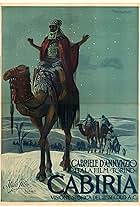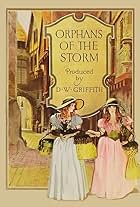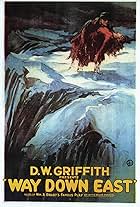ÉVALUATION IMDb
6,4/10
1,5 k
MA NOTE
Ajouter une intrigue dans votre languePrevented from dating his sweetheart by his uncle, a young man turns his thoughts to murder.Prevented from dating his sweetheart by his uncle, a young man turns his thoughts to murder.Prevented from dating his sweetheart by his uncle, a young man turns his thoughts to murder.
George Beranger
- The Detective and Pan
- (as George A. Beranger)
Josephine Crowell
- The Sweetheart's Mother
- (uncredited)
Walter Long
- The Detective
- (uncredited)
Wallace Reid
- The Doctor
- (uncredited)
Histoire
Le saviez-vous
- AnecdotesHad a massive influence on young Alfred Hitchcock.
- Citations
Intertitle: She fears something more than mere mental derangement.
- ConnexionsFeatured in Kingdom of Shadows (1998)
Commentaire en vedette
Henry B. Walthall loves Blanche Sweet, but Henry's uncle, Spottiswoode Aitken, is not willing to share the love of his nephew with anyone and forbids Henry's marriage to the girl he calls Annabelle Lee. In a rage, Walthall kills his uncle and buries the corpse in the fireplace. His conscience will not let the ghost rest.
D.W. Griffith, freed from the strictures of his Biograph bosses, digs into several Edgar Allen Poe pieces, including 'Annabelle Lee", and "The Tell-Tale Heart." Griffith is still working at developing his control of the feature-length movie, and there are several subplots that lead nowhere. He is also apparently trying to work out a series of symbolic shots, like the one with ghouls. Cameraman Karl Brown, in hs memoir ADVENTURES WITH D.W. GRIFFITH would write about one such experiment that didn't come off.
It is Griffith's corps of actors that add power to this often erratic effort. Walthall's performance is masterful, and George Siegmann, as "The Italian" watches the murder with an expression that implies more pleasure than that of the money he will blackmail from Walthall. Griffith psychological shots are interesting and work; the odd irising and focuses of the camera while Walthall is talking to detective Ralph Lewis are very evocative.
In the end, this was a programmer that Griffith made, according to Brown, to keep the money coming in while he worked on his big project, and to figure out how to do the things he would need.
D.W. Griffith, freed from the strictures of his Biograph bosses, digs into several Edgar Allen Poe pieces, including 'Annabelle Lee", and "The Tell-Tale Heart." Griffith is still working at developing his control of the feature-length movie, and there are several subplots that lead nowhere. He is also apparently trying to work out a series of symbolic shots, like the one with ghouls. Cameraman Karl Brown, in hs memoir ADVENTURES WITH D.W. GRIFFITH would write about one such experiment that didn't come off.
It is Griffith's corps of actors that add power to this often erratic effort. Walthall's performance is masterful, and George Siegmann, as "The Italian" watches the murder with an expression that implies more pleasure than that of the money he will blackmail from Walthall. Griffith psychological shots are interesting and work; the odd irising and focuses of the camera while Walthall is talking to detective Ralph Lewis are very evocative.
In the end, this was a programmer that Griffith made, according to Brown, to keep the money coming in while he worked on his big project, and to figure out how to do the things he would need.
- boblipton
- 30 mai 2019
- Lien permanent
Meilleurs choix
Connectez-vous pour évaluer et surveiller les recommandations personnalisées
Détails
- Durée1 heure 18 minutes
- Mixage
- Rapport de forme
- 1.33 : 1
Contribuer à cette page
Suggérer une modification ou ajouter du contenu manquant

Lacune principale
By what name was The Avenging Conscience: or 'Thou Shalt Not Kill' (1914) officially released in Canada in English?
Répondre





























